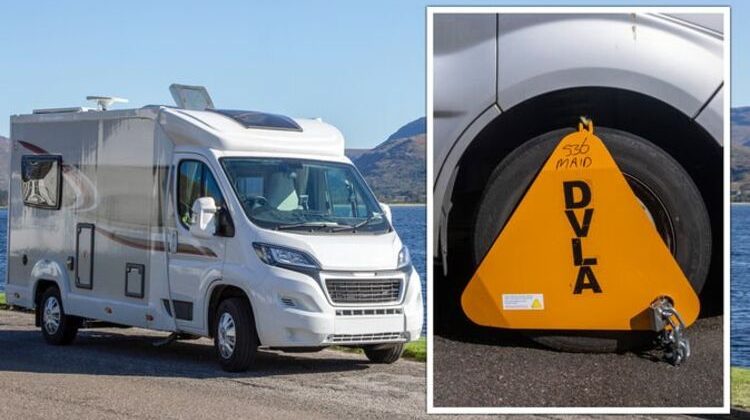DVLA manager explains the importance of taxing your vehicle
We use your sign-up to provide content in ways you’ve consented to and to improve our understanding of you. This may include adverts from us and 3rd parties based on our understanding. You can unsubscribe at any time. More info
The DVLA has been working to cut down on the prevalence of drivers avoiding paying the tax on their vehicle with its “tax it, don’t risk it” campaign. The Government agency has been targeting the areas across the UK where some of the highest numbers of enforcement actions took place, including fines, penalties and clamping.
In 2021, London had almost 100,000 total enforcement actions, with Birmingham coming in a distant second with 52,000 actions and Manchester in third with nearly 29,000 incidents.
Paul Davies, DVLA’s National Wheelclamping & ANPR Manager, said the risk of having a vehicle towed was not worth it.
Speaking exclusively to Express.co.uk, he said: “Well it’s quite peculiar to see a motorhome.
“It’s not something we often see, but when the wheel clampers did spot it, we did the necessary checks and it was clamped.


“Whoever owns that vehicle didn’t pay the lease fee, so it was due to come into the vehicle pound.
“It’s one of the stranger ones. We normally get a range of vehicles.
“We’ll have the high end vehicles like the Range Rovers and the BMWs, ones that you would expect to be taxed.
“Then you’ve got the older ones that are falling apart or have got damaged and people likely just abandoned the vehicle and are happy to see it go.”
DON’T MISS
GB News guest claims electric car ‘broke after a few months’ [SHOCKING]
Motorists risk £1,000 fine for asking for spare change at car park [WARNING]
‘Is this fair?’ Motorists call on classic cars and EVs to pay car tax [DEBATE]
He added that it can cost far more for a driver to retrieve their vehicle after it has been clamped or towed than it would be to tax the vehicle.
From March 2020, the annual vehicle excise duty (VED) for new motorhomes and campervans was set at a flat rate of £265, which rose to £270 from April 1, 2020.
These chargers may be seen as a relief to some drivers in the UK, as it meant a move away from the European Union regulation 2018/1832.
This would have required all motorhomes, campervans and light commercial vehicles to be taxed based on their emissions output.
 Book here
Book here
Book your MOT with the UK’s #1 MOT tester – just click the link to book online.

Source: Read Full Article
